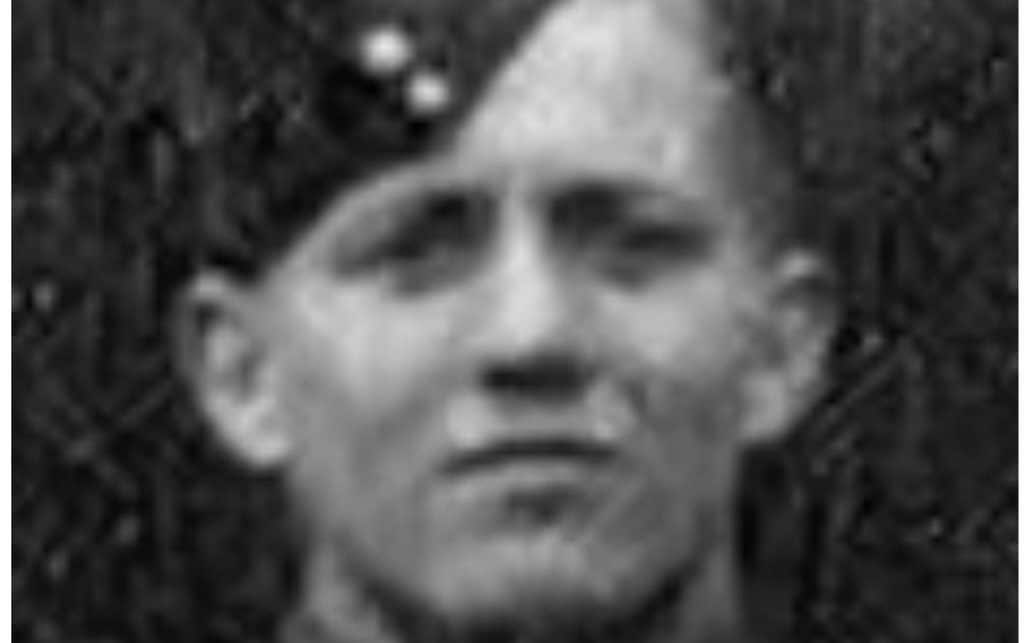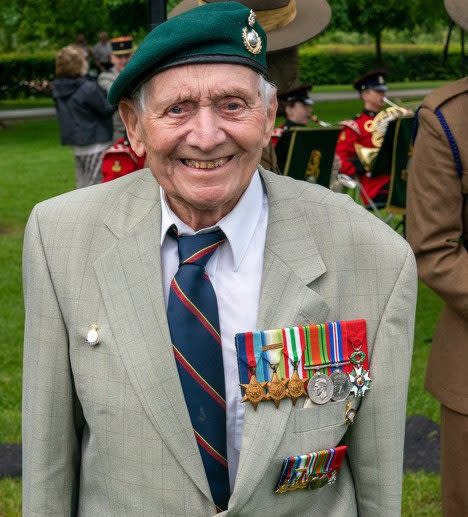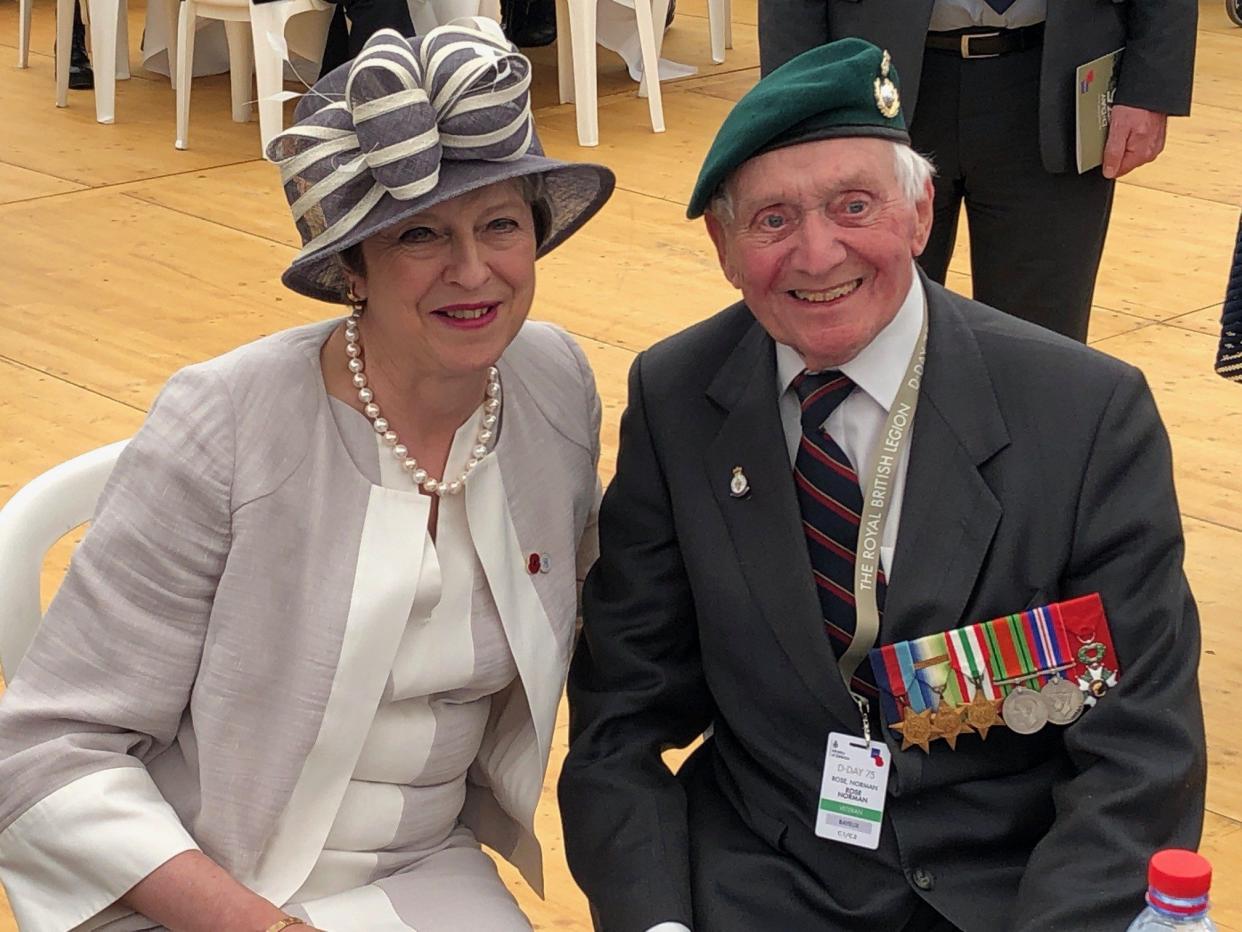Norman Rose, nuclear physicist who as a young commando had landed on Gold Beach on D-Day – obituary

Norman Rose, who has died aged 98, was still a teenager but already an experienced Royal Marines Commando when on June 6 1944 he landed on Jig Green beach, west of Le Hamel.
Jig Green was the section of Gold Beach at the right-most edge of the British-Canadian front, and the “hinge” between them and the Americans. The beach should have been in the hands of the first wave of troops, but it was deserted apart from some wrecked tanks, as heavy fire and the tidal current had pushed the intended landing parties to the east.
Five of 47 Commando’s landing craft were sunk before they reached the beach, where they suffered under thick machine-gun fire, and there were 76 casualties out of a unit strength of just 420. As they came ashore, one marine quipped: “Perhaps we’re intruding: this seems to be a private beach.”
Their objective was the heavily defended harbour of Port-en-Bessin-Huppain, which was needed by the Allied armies for fuel deliveries via the Pluto pipeline until Cherbourg could be liberated. After an overnight march, the commandos stormed the Germans from the rear, while the cruiser HMS Emerald laid down heavy fire against German positions from a range of 5,000 yards.

The marines were helped by two young Frenchmen who gave them information about German defences and minefields, and by a gendarme who guided them through the town; by evening the port was theirs. But by the time mopping-up operations were complete on June 9, the commando had been reduced to 19 officers and 259 men. In 2016, Rose was appointed to the Légion d’honneur for his part in these events.
Norman Francis Rose was born on August 11 1925 at Wixford, Warwickshire, where his father was a gamekeeper. It was a musical family and Norman was recruited aged eight from Holy Trinity, Stratford-upon-Avon, into the Coventry Cathedral choir. By 1938 he was head chorister, but his musical career ended after evensong on November 14 1940, when the Germans bombed the centre of Coventry and its medieval cathedral.
Rose joined the Royal Marines aged 17 and trained at Achnacarry in the Scottish Highlands. Soon he was in action, landing on the beaches at Salerno and then Anzio in western Italy with 40 Commando.
After the Normandy landings, 47 Commando’s losses were replaced and operations recommenced. Rose was continually in action as the Allies advanced eastwards until, on October 31 1944 he and his companions embarked for the amphibious assault on Walcheren in the Netherlands. But the next day, as he waded ashore, he was wounded. His war was over.
Rose was discharged from the Marines in 1947 and was sponsored by Courtaulds to read chemistry at King’s College London. A degree in physics followed, and he became a chartered engineer.

Over the next 45 years he became one of the country’s most senior nuclear physicists, working at Harwell, Dounreay, Aldermaston and Risley. Among more classified activity he developed plutonium fuels for nuclear fast reactors and oversaw the building of 14 gas-cooled nuclear reactors.
A polymath, he loved poetry, literature, and music, was an avid walker, a keen astronomer, a plantsman, and his home-brewed beer was legendary.
In his seventies Rose threw himself into a PhD on Joseph Priestley, the 18th-century chemist, philosopher, theologian, grammarian and political theorist. He gave lectures on Priestley in the US, and in 2005 marked his 80th birthday by taking the trans-Siberian railway to give a lecture series in Japan.
Catching the train in Newport, over the next seven weeks he travelled via Brussels, Warsaw, Moscow, Irkutsk, Ulan Bator, Beijing and Shanghai, and then by ferry to Osaka, before taking another train from Tokyo to Aomori in the far north of Honshu, Japan’s largest island.
Norman Rose married Norma Trunkfield in 1947, but they divorced. While singing in a choir in Berkshire he met Daphne James, and they married in 1972. He is survived by a son from his first marriage – another son predeceased him – and by a daughter from his second. He is the grandfather of the soprano Molly Noon.
Norman Rose, born August 11 1925, died February 21 2024


